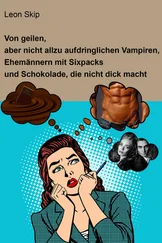I THINK IT WAS Edward G. Robinson, but it may have been John Garfield, in some noir movie or other, who spoke the line “Yeah, yeah, okay, okay, I guess I lied in a big way, all right.” To the three detectives in Philip and Cynthia’s living room I had lied in a big way. Because here is what had happened the night before.
Lily Svetgartot had telephoned me at about eight P.M. (She had finagled my unlisted number from Philip or Cynthia.) “Sam, I had too much to drink and mentioned to Mr. Istvakson about seeing you on the beach near Philip and Cynthia’s house that night in the moonlight. Also, Emily Kalman told him you had mistaken her for your wife. Now he’s driving out to Port Medway to have a look for himself. For the purposes of research. I’ve never seen him so excited.”
“He can’t leave well enough alone,” I had told her.
“No, even if ‘well enough’ isn’t really very well at all.”
The best thing would have been for me to have stayed in my cottage. What could Istvakson have done but wander around the empty beach and drive home? I started to drink Scotch and, while drinking, pictured him driving, dressed in a Robert Mitchum raincoat (no one wore a raincoat like Robert Mitchum), his car screeching and spinning off a cliff, maybe near Peggy’s Cove. I don’t like Scotch all that much; after three or four drinks I walked across to the beach and waited. In half an hour or so, I saw the yellow tunnels of his headlights in the fog. Lily Svetgartot must’ve provided him with directions. She must have. It was pelting down rain. He parked his car at a steep angle in front of Philip and Cynthia’s house. The house was dark except for a light in the kitchen. Istvakson was what Elizabeth would call a big stumblebum. Ungainly in his black raincoat and galoshes, he moved heavily and was carrying a camera. He saw me and started to shout, “Where is she? Where is she?”
“Go back to Halifax!” I shouted. “Get in your car and go back to Halifax!”
On the beach now, Peter Istvakson started taking photographs in a crazy way, turning left and right, spinning around sharply — light flashes every ten seconds or so — lest he miss Elizabeth behind him, to his left, to his right, or behind him again. He stumbled and fell, righting himself with difficulty, snapping photographs.
“Sam Lattimore, my writer,” he said in half-garbled pleading. “This place. This place you come down to see your wife. I’m sorry for violating this beach. But I’ve found my ending. I’ve discovered my ending.”
He reeled unsteadily backward into the water, roughhoused by waves, up to his waist. He attempted to hold his camera above his head, but when he saw that wasn’t working, he flung it in a high arc onto the beach. And then I walked into the ocean myself, right up to Istvakson, said, “Go back to Halifax!” and pushed him. Even harder a second time, pushed him. He groaned, “What—?” He lost his footing, falling backward into the waves. His arms and legs flailed for a few seconds. Then he disappeared.
I may have been under every influence except sanity, but I recognized this for what it was, the exact thing it was. The water taking him. One minute here, the next gone. Though I had not held him under, still it was a hands-on drowning. I can testify to that. Give me a witness! I’m that witness. I began wildly sweeping my arms beneath the water. Nothing. I stepped forward, sliding my feet along, again waving my arms as deep in the water as I could manage. I changed direction, probed with one foot and then the other, half losing my own balance, sobering up. I don’t know how long I was out there. Life seemed to be moving in slow motion, even taking in breath was difficult, fits and starts, anxious. I was aware of thinking, Don’t black out again. Don’t black out. I turned back to shore. There was Elizabeth. Holding her books. I didn’t know what she had or hadn’t seen. She took a few tentative steps backward, then turned and walked toward the trees. I thought, If she saw what I did, she won’t come back.
Standing there. Attempting to keep my balance. Staring at the water. Feeling the pull of the tide. I then thought — I remember thinking, I have a nice fire going in the fireplace. I had become the person who had done this thing. Just in the time it took to drag myself out of the cold water is all it took to say to myself: You won’t own up.
I didn’t knock on Philip and Cynthia’s door to own up. I didn’t call the Halifax police to own up. I didn’t call Lily Svetgartot to own up. The only other thing I remember from that night was saying out loud — it wasn’t a prayer—“I hope Elizabeth didn’t see anything.”
Through my kitchen window, at first light, I was watching the cove through binoculars. It was lightly raining. I saw Philip, dressed in a bulky sweater, trousers, and galoshes, walk down to the beach. I followed his movements and saw him approach a body stretched half in the water and half on the sand. A few gulls scattered off. With great effort Philip dragged Istvakson, face-down, fully onto the sand. Istvakson’s raincoat was spread out like enormous black wings, and he had one shoe missing. (A week later Philip told me, “The toxicology report showed Istvakson had enough alcohol in his blood to kill a horse.”) Philip then hurried to his house, and presumably it was then that he called the police, or Lily Svetgartot, or both.
In the context of continuing to lie to detectives, to this day I still haven’t mentioned that, when I knew that Istvakson had drowned, I’d picked up his camera from the sand, and later I sent the film to Montreal to be developed (accompanied by a note that read, “Still photographs from a movie set”). Thirty-one photographs of a beach at night, empty but for the visible scrawls of rain. Actually, as guilt mercilessly set in, I considered handing the photographs over to the detectives, describing what had happened that night and taking the consequences. That thought was short-lived, though. Because when I sent the film to be developed, I also asked that a set of eight-by-ten prints be made. About a week later, when I put the prints in neat rows on the kitchen table, I discovered that in one photograph I was visible, my mouth in the grotesque elastic shape of Edvard Munch’s The Scream (I was hardly recognizable, even to myself). In another photograph, Philip and Cynthia appear, albeit in silhouette, at their upstairs bedroom window. They had seen. Obviously Philip and Cynthia had seen.
Philip and Cynthia have not owned up to the detectives, protective friends that they are. Situational ethics in Port Medway. In turn, they don’t know about the photographs, which are in a drawer in the guest room of my cottage.
My guess is that this is not what Istvakson had in mind for an ending.
I Haven’t Slept in Ten Years
THREE DAYS AFTER the drowning, a visibly distraught Lily Svetgartot arrived at my door at about five o’clock. “I haven’t slept in ten years,” she said. In appearance she was entirely disheveled, a mess. No surprise there. I stepped aside and she walked in and began talking as if in midsentence: “And Istvakson figured he had only three or four days left to shoot the movie. Contractually, Emily Kalman’s work was done, but Istvakson begged her not to leave yet. So Emily gave him a week more. She likes Halifax. Istvakson was at wit’s end. He was drinking like a fish. That expression, ‘like a fish,’ and everyone on set was quite put off, you see. Quite put off, and quarreling, everyone was quarreling. Over the smallest things quarreling.” At the counter, she started to make coffee. She turned and said, “Sam — okay, I’m going to say this straight out. Michiko Zento has come up with an ending. She’s been burning the midnight oil — right way to say it? Studying hard Istvakson’s research notes. I’m just going to say it. The ending she’s come up with — and I think that this comes from Istvakson’s notes — rest in peace, Peter Istvakson. Though he probably won’t rest in peace.”
Читать дальше












